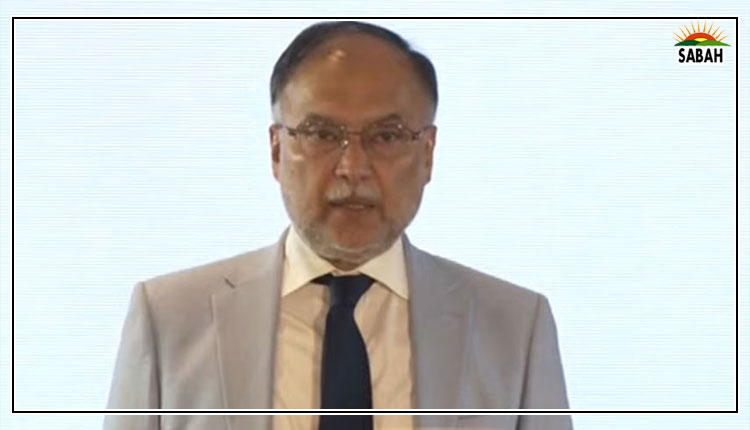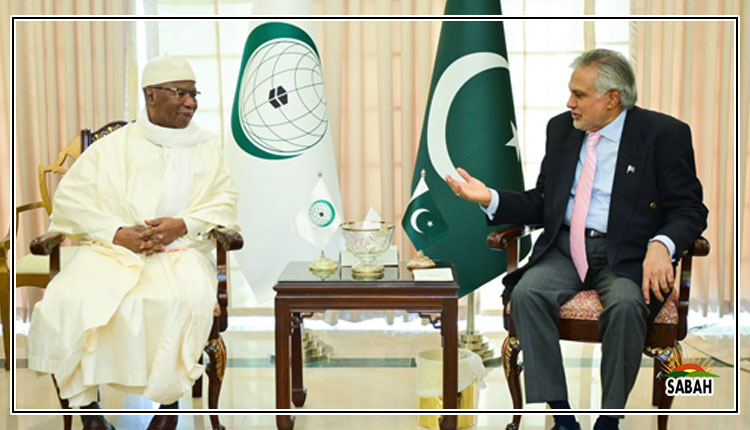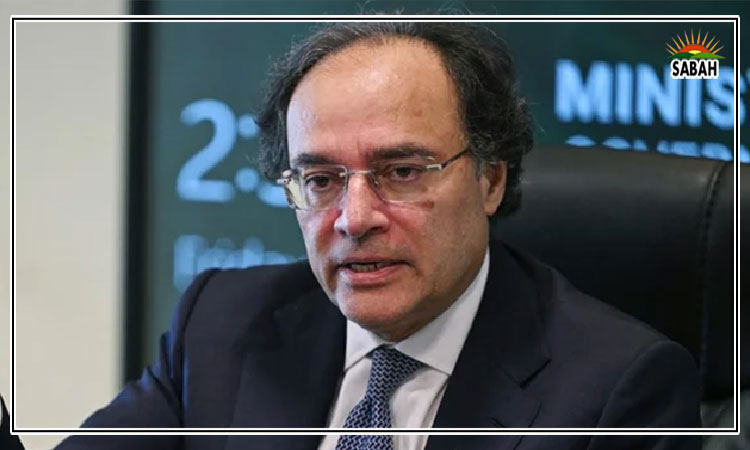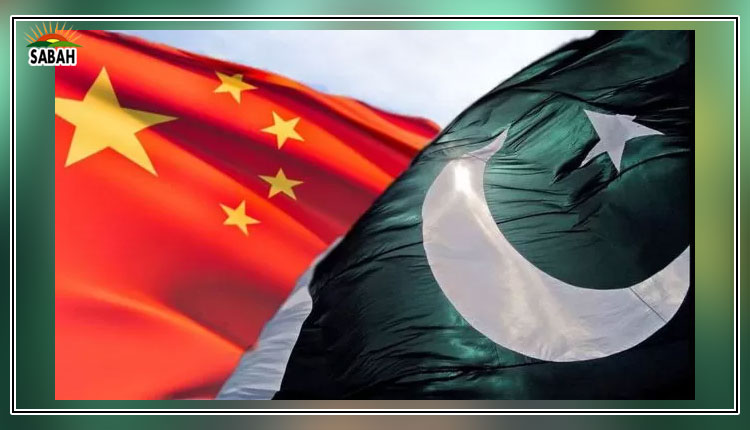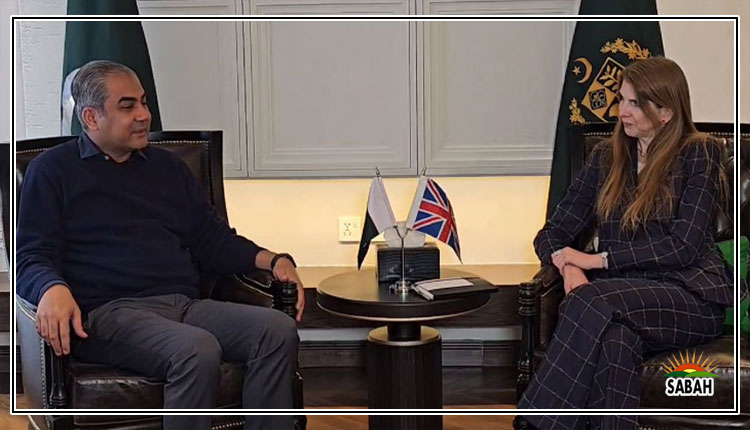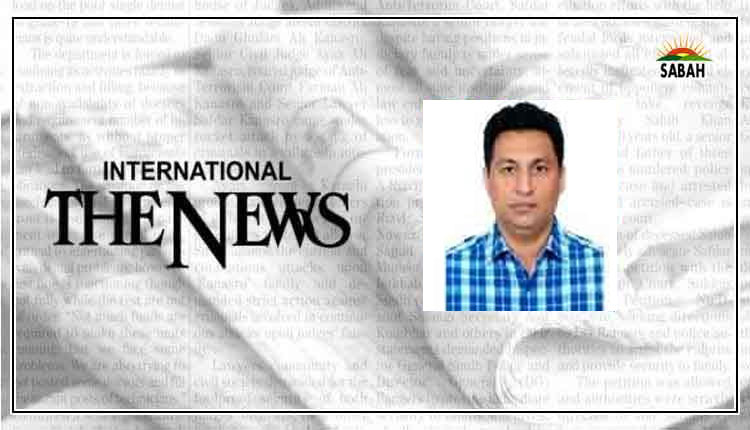Jurisdiction matters… Barrister Zamir Ghumro
The two main pillars of a viable social contract between citizens and state are a strong economy and stable law and order. The goal of all good politics is also the same.
Ordinary nonpartisan citizens look up to and vote for political parties of their choice keeping in mind these two immediate (and long-term) goals.
The constitution spells out very clearly that these subjects belong to the provinces and not to the federal government. However, the constitution has been ignored, misunderstood or perhaps even misinterpreted deliberately in this respect.
The economy is dependent on agriculture and industry. Agriculture and industry are purely provincial matters, not enumerated in the Federal Legislative List. The constitution is unambiguous on this.
You Might Also Like
Modular Homes 2024 (View Prices)
Modular Homes 2024 (View Prices)
Modular Houses | Search Ads
Get the best night’s sleep on these amazing smart beds
Get the best night’s sleep on these amazing smart beds
LifeStyleTrendsHQ
Islamabad: Stairlift Deals (Take A Look)
Islamabad: Stairlift Deals (Take A Look)
Stairlift | Search Ads
However, both subjects are being controlled by the federal government through its illegally mandated ministries of industries and production and food security. This has created a dangerous dichotomy and citizens are led to believe that regulating the economy is basically the job of Islamabad.
Under the garb of tax collection, the federal government has established a monopoly over the prices of oil, gas and electricity.
Where it should have concerned itself only with the maintenance of strategic reserves (oil for defence imports) and liberalized the rest, it instead monopolizes rather than regulating exports and imports of all commodities, goods and services.
Through this indirect method, Islamabad controls industrial and agricultural production, and monopolizes their export and import. These sectors are badly and negatively affected by central decision-making and policy formulation.
Closely coupled with the economy is the subject of energy in the forms of electricity and gas. Both industry and agriculture are dependent on energy. The high cost of electricity and gas has crippled both the sectors and affected the economy badly, bringing misery and suffering to the people.
Under Article 157 of the constitution, the generation and distribution of electricity within the province is the exclusive domain of the provincial government which is mandated to fix the tariff, lay transmission lines and impose a consumption tax.
However, all these functions of the provinces have been illegally taken over by the federal government. By doing so, Islamabad subsidizes the Punjab through cheap electricity and gas that are produced and transmitted in Sindh, Balochistan and Khyber Pakhtunkhwa.
The federal bureaucracy operating out of the Islamabad Capital Territory (ICT) has illegally and unconstitutionally usurped these functions. Under the constitution, Islamabad should have no concern with energy distribution and fixation of their tariff (except within the ICT) as these are tasks assigned to provincial jurisdictions.
Law enforcement and policing are also purely provincial matters. These are not enumerated in the Federal Legislative List of the 1973 constitution.
However, these subjects too have been usurped by the federal government. By contravening the constitution, Islamabad created the Police Service of Pakistan. It did so initially under a purported agreement with the provinces in 1949 (without Balochistans consent) and subsequently under the force of the 1985 Civil Servant Rules framed under the Federal Civil Servants Act 1973.
Under articles 240 and 260 of the constitution, all services for the federal government as well as provinces are to be created by parliament and provincial assemblies under an act of parliament or provincial assemblies respectively.
Without the tabling of a bill and/or the passage of an act, an entrenched federal bureaucracy surreptitiously, stealthily and incrementally has assumed or retained powers not assigned to it under the constitution. Thus 50 years have passed, with Islamabad emasculating three provinces.
Enforcement and protection of fundamental rights is exclusively conferred upon the provincial high courts under Article 199 of the constitution. Islamabad can only protect and enforce these rights in the ICT, not in the provinces.
Under the 1973 constitution (diverging from previous constitutions) the Supreme Court was given limited concurrent power to be exercised subject to the jurisdiction of high courts under Article 184(3). The SC under previous CJs flexed its muscle (initiating numerous suo-motu proceedings) beyond the spirit of this article.
Now, parliament has created a right of appeal under Article 184(3) which is in conflict with articles 199, 184 and 142 of the constitution. The provincial power of enforcement of fundamental rights cannot be regulated by parliament unless provincial assemblies give their consent under Article 144 of the constitution.
The omission of right of appeal under Article 184(3) is rightful and deliberate as this power is conferred on provinces and the Supreme Court was given limited concurrent jurisdiction to pass orders in inquisitorial proceedings only.
Since the elections, people have been anxious and worried about the compo-sition and successful formation of the federal government. The composition and formation of provincial governments caused much less anxiety as it is the federal government that impacts our lives through the control of economy, law and order, energy, and fundamental rights.
All the above sectors are key to fundamental stability in personal and public life, private and public space and all these subjects belong to the provinces.
Enabled by a well-entrenched civil and military bureaucracy operating in Islamabad, these sectors have been surreptitiously usurped by the federal government through ordinances and other means.
The ministries of industry and agriculture (the backbone of the economy) are not given the status they deserve in the provincial governments because policies regarding import and export of produce, fertilizer, machinery and water availability etc are all controlled by Islamabad.
Even the Ministry of Interior is an unconstitutional body as the subject of law and order rests with the provinces. To mitigate matters, the chief ministers of the provinces tend to retain the home/interior portfolio, to avoid conflict with the federal government.
Indeed they have no option if they want to exercise some degree of control over the elite federal police that tends to boss over the provincial subject of policing and law and order and even turns roguish at times.
Courtesy The News




